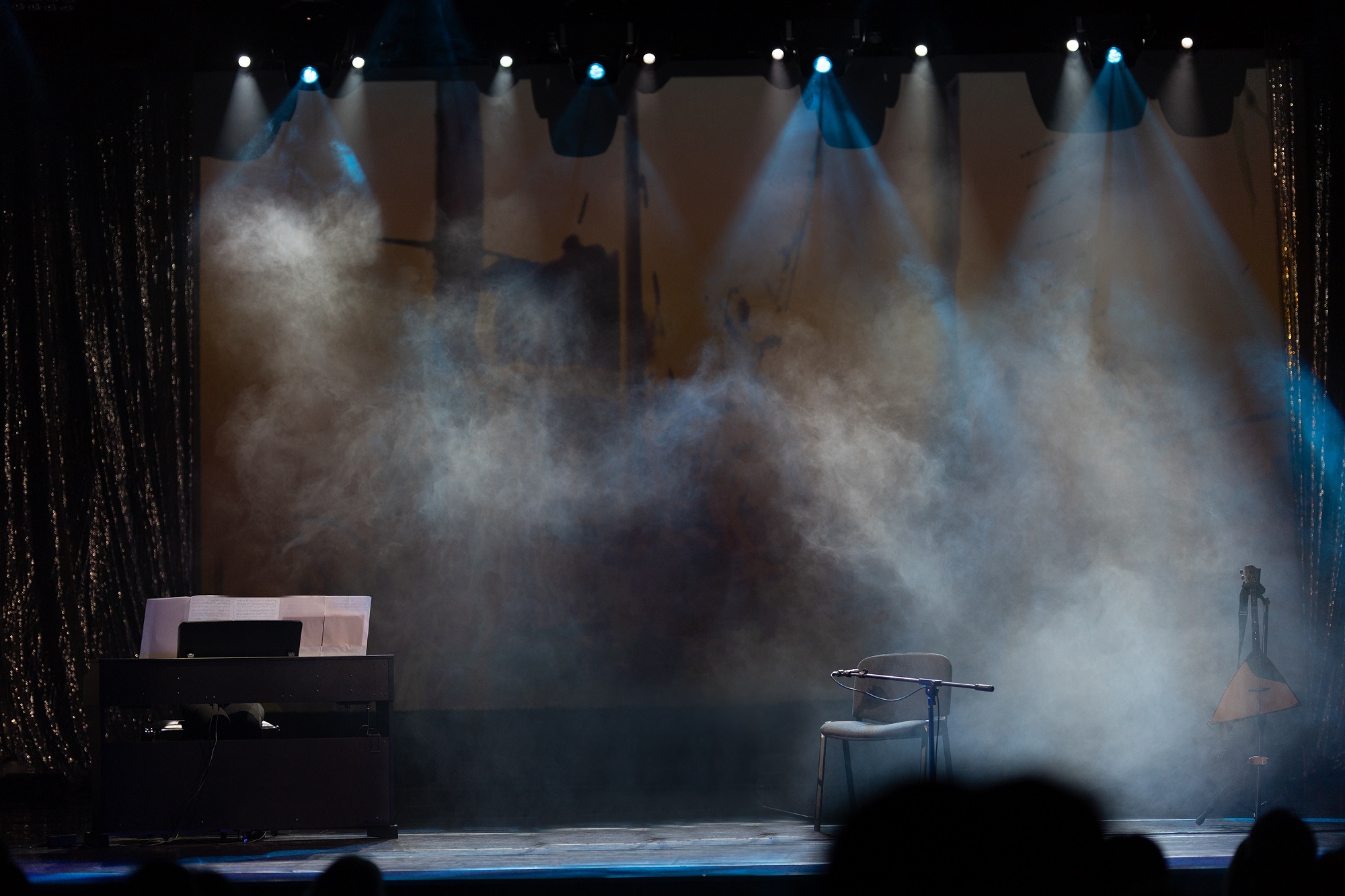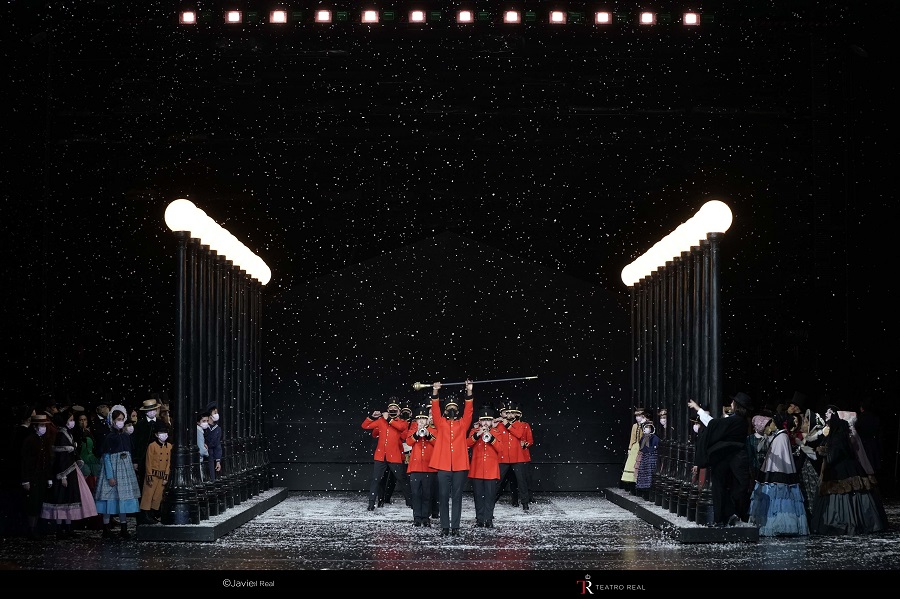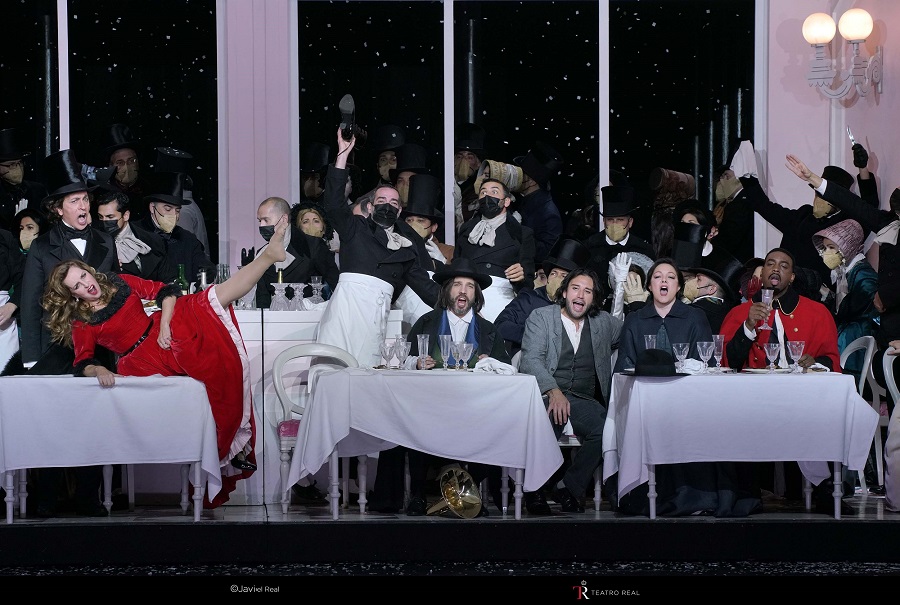If there is one thing that an impresario and the stage manager of an opera house have in common, it is the shared objective of ensuring the successful execution of a project. It is the stage manager’s job to see that a production opens successfully while the impresario must ensure that it is a financial success – and this success comes from the company in its entirety. As Beatriz Muñoz-Seca and Josep Riverola comment in their book, The New Operational Culture: The Case of the Theatre Industry, the most valuable asset in theater production is maximizing the potential of each and every employee.
The novelist Laurence Sterne wrote, “There is no definitive list of the duties of a stage manager that is applicable to all theaters and staging environments. Regardless of specific duties, however, the stage manager is the individual who accepts responsibility for the smooth running of rehearsals and performances, on stage and backstage.” It is a quote known well amongst people of the stage and particularly stage managers such as myself.
The stage manager’s job is, quite simply, to take charge and lead the way, to guide, to give orders. We are in a constant state of liaison, working between the artists and the technicians to ensure that a performance runs in accordance with the wishes of the stage and musical directors. This is possible only with a solid understanding of what each does and by cultivating a good relationship with each.
The skills that stage managers must hone are not that different from managers working in industries the world over. We too must be able to plan, utilize good organizational skills, multitask, prioritize, and – extremely important – be able to remain calm under pressure and during a crisis. A stage manager is ready for absolutely anything.
It is true that any job related to the theater seems quite glamorous, the opera particularly so. Art, famous talent, music, creativity abound – but it is not only that. In fact, it takes quite a bit of effort to make all that glamour appear, and much of this work of ensuring the end product (what results from “the smooth running of rehearsals and performances, on stage and backstage”) rests on the stage manager. The hours are frequently long and full of repetitive tasks, not to mention the fact that the work itself is physically demanding.
Every new project represents a fresh challenge. For example, the new production of La Bohème, a co-production between the Teatro Real, the Royal Opera House, and the Lyric Opera House of Chicago, has required shifting large pieces of scenery in full view of the audience. This has entailed a huge team of technicians that must be impeccably aligned.
The best way to explain the stage managers’ responsibilities is to break down the rehearsal process into three stages:
Analysis and preparation. At the start of a new production, we analyze everything (and collate the paperwork) in order to familiarize ourselves with each detail of the score, scene, every timing, the artistic team, set design, costumes, and so on. In this way, by the time the first day of rehearsals comes around, the opera is as familiar to us as – as Victor Hugo would say – our “own face in the glass.”
Preparing a co-production that has already had a run at another opera house involves analyzing the previous run and adapting to what is called our “Tops code”, which is the information system and set of guidelines used to coordinate the tasks of everyone involved in the production. Ever since the Teatro Real reopened in 1997, the technical direction team has used this unique communications code unlike that used at any other theater.
Rehearsals. In general, we spend two to four weeks in the physical space of the rehearsal room, annotating the score, detailing every entrance, exit, and blocking (which is the precise staging) of the singers, chorus, dancers, and extras. We also set the schedule for the rehearsals and daily production, and monitor attendance. With this production of La bohème, we are rehearsing with three different casts because it is impossible for the singers to perform two days running – thus the planning process and the schedule are essential to success. There are different kinds of rehearsal – first stage, Italian, full ensemble, ante piano, pre-general, general, and lighting – and during these weeks before the opening, it’s the team’s job to provide every person with technical instructions so that all of us – more than 200 people – are in sync with the maestro’s score.
Furthermore, during the rehearsal period, there are various stage management roles:
- Level 1 Stage Manager, communicates directly with the opera directors and is responsible for the centralization of all information throughout the rehearsal period.
- Once the company has begun to rehearse on stage, the Deputy Stage Manager will take the reins. It is their job to instruct everyone in the technical team, lighting, stage machinery, video, sound, costume, and makeup, as well as making dressing-room announcements.
- One stage manager, in charge of stage left, and another in charge of stage right. They indicate when to enter the stage, ensuring that this is done in an orderly fashion, avoiding congestion, and seeing that performers enter when they are meant to. It is also the stage manager’s job to make sure that they have any props that are required, as well as ensuring that everything is to hand if a quick change is needed.
During the second act of La bohème, there was a quick costume change that required everyone in wardrobe and makeup to be on hand. It is very much like a Formula 1 pit-stop! The extras have to take off the waiters’ uniforms of the scene in the Café Momus, to join the parade at the end of Act II. For the production of La bohème, during the first and fourth acts, the manager responsible for stage right would give the singers their call from the orchestra pit, and in the third act, they would get into the customs hut, on stage, to give the singers and extras their cue to enter.
A still from the Teatro Real production of La bohème.
Performances. Once a show has opened, the stage managers are responsible for the smooth running of each night’s performance. We make sure that every last detail is taken care of and ensure that nothing untoward happens. Attention to detail and good communication skills are essential.
The director of La bohème, Richard Jones, has remained faithful to the period in which it is set; however, the stage machinery is in full view of the audience. He has dispensed with those elements that conceal the inner workings of the theater and, in fact, the technical team and stage machinery are an integral part of what the audience sees.
Allow me to provide a breakdown of the technical crew this production of La bohème required: 19 people in stage machinery; 7 in props; 8 in lighting; 4 in surtitling; 15 in makeup, and 14 in costume. In the artistic team, there were 8 soloists (Rodolfo, Mimì, Marcello, Musetta, Schaunard, Colline, Benoît, and Alcindoro), 60 in the chorus, 22 choirboys, 12 extras, and 88 in the orchestra. If you include the maestros, there were over 250 people on stage, their every move coordinated with military precision by a team of 4 stage managers.
A still from the Teatro Real production of La bohème.
When there is a crisis, it is the stage managers’ job to remain cool, calm, and collected. The stage manager must be a steadying presence. And because we work in an environment that is unpredictable, and which is always evolving. For that reason, we must be prepared for any eventuality; we must always have a backup plan and keep calm, so that the audience is none the wiser if something goes awry.
For example, during one performance, our intercom went down, and this was an issue because nothing happens in the theater, without our say-so. The intercom is our communication – so without it, no one can do anything, literally. We went into emergency mode, using cell phones and walkie-talkies to keep the performance going without the audience noticing anything.
On another occasion, one of the principals in the show began to feel unwell and, by the end of the third act, he could no longer continue singing. As luck would have it, the understudy was still in the theater (normally they leave after the intermission.) That day, we had a sixth sense and took the precaution of asking him not to leave, which meant that the performance was able to continue with a new tenor.
In this line of work, you can take nothing for granted – and all elements of the production must be reviewed constantly. There’s a quote by Theodor Adorno that’s become something of a daily motto, for me, in my work: a mistrustful insistence is always healthy. Our system guarantees a “five-star service”, attention to detail, and assurance that all needs will be met, and, as such, it is transferable to any business model looking to ensure excellence.
© IE Insights.













